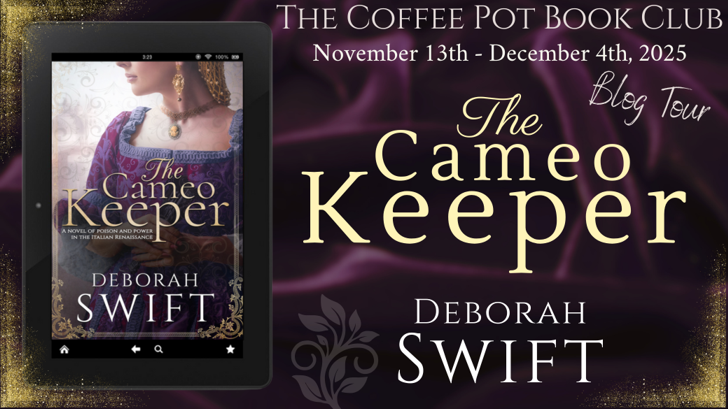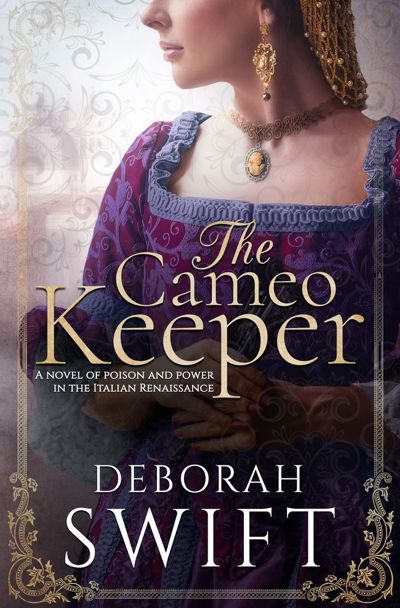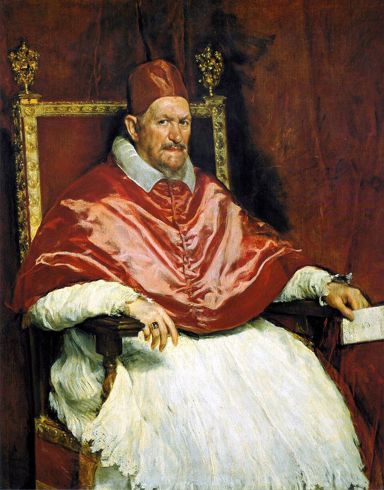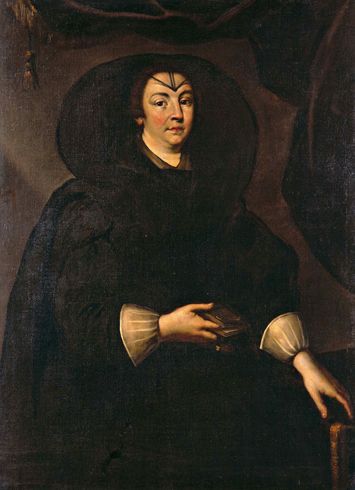
Rome 1644: A Novel of Love, Power, and Poison
Remember tonight… for it is the beginning of always ― Dante Alighieri
In the heart of Rome, the conclave is choosing a new Pope, and whoever wins will determine the fate of the Eternal City.
Astrologer Mia and her fiancé Jacopo, a physician at the Santo Spirito Hospital, plan to marry, but the election result is a shock and changes everything.
As Pope Innocent X takes the throne, he brings along his sister-in-law, the formidable Donna Olimpia Maidalchini, known as La Papessa – the female Pope. When Mia is offered a position as her personal astrologer, she and Jacopo find themselves on opposite sides of the most powerful family in Rome.
Mia is determined to protect her mother, Giulia Tofana, a renowned poisoner. But with La Papessa obsessed with bringing Giulia to justice, Mia and Jacopo’s love is put to the ultimate test.
As the new dawn of Renaissance medicine emerges, Mia must navigate the dangerous political landscape of Rome while trying to protect her family and her heart. Will she be able to save her mother, or will she lose everything she holds dear?
For fans of “The Borgias” and “The Crown,” this gripping tale of love, power, and poison will keep you on the edge of your seat until the very end.

Donna Olimpia Maidalchini: Rome’s Most Notorious Woman
For sheer audacity, nobody outshines ‘La Papessa’ – Donna Olimpia Maidalchini who, in 17th-century Rome, became the city’s most influential woman. Born into a relatively humble family in Viterbo in 1591, Olimpia Maidalchini’s early years gave little indication of the formidable powerhouse she would one day become. The Maidalchini family were not among Rome’s ancient nobility, but they possessed enough standing to secure Olimpia a marriage into the Pamphili clan – a union that would catapult Olimpia into the very heart of Roman politics.

When the conclave elected Olimpia’s brother-in-law, Giovanni Battista Pamphili, to be Pope, it ousted the Barberini family who had previously been in control. He became Pope Innocent X in 1644 and within weeks established Donna Olimpia in his household. Previously a lawyer, he could always see both sides of an argument and was slow to make decisions. Donna Olimpia was the opposite, intelligent and astute, she did not suffer fools gladly, and soon began to decide for him. Rome began to buzz with rumours that the new pope was having an affair with his formidable sister-in-law. Her closeness to Pope Innocent X led to endless salacious speculation. Some whispered that she was his secret wife, others insisted she wielded mystical powers, and a few even claimed she dabbled in necromancy. These tales, of course, were mostly the inventions of her enemies, who could not accept that a woman could rise so high without resorting to sorcery or witchcraft.

Olimpia’s influence was so pervasive that she earned the nickname “La Papessa”—the female pope. Although intended as an insult, it was also a recognition of her extraordinary command over the political, clerical, and financial affairs of the papacy. Through strategy and negotiation Olimpia turned the Pamphili family into one of Rome’s most powerful dynasties. Appointments of staff, lucrative contracts, land deals – nothing happened in the Vatican without Donna Olimpia’s approval.
She gave privileges to those who paid her homage, and particularly if they offered a handsome bribe. Olimpia was no stranger to enemies, and many lampooning songs were sung about her. One notable song referenced in historical accounts as “wounding Donna Olimpia to the quick” was titled: Prendi Musa la Mia Piva ò Prendi Musa il Colascione (Take up, O muse, my bagpipe) This song used suggestive double entendre, where musical instruments were metaphors for male anatomy. The full text of the original song has not survived to the present day, but its existence and impact are well-documented in historical records of the time.
In my novel, The Cameo Keeper, there are attempts on Donna Olimpia’s life, and in fact many plotted to remove her from her influence on the Pope. Cardinals, nobles, and even the common folk resented her dominance. Yet, the more she was reviled, the more stubborn she became and the more she seemed to flourish.
The most enduring legend about Olimpia Maidalchini is the tale of Innocent X’s death. As the story goes, when the pope died, Olimpia allegedly refused to pay for his funeral. Whether true or exaggerated, this anecdote cemented her reputation as a woman both feared and resented.

She was a patron of the arts, commissioning churches and palaces that still grace Rome today. The vast and stunning Palazzo Pamphili on Piazza Navona, for instance, stands as a permanent monument to her vision and taste. She used her position to support artists, builders, and thinkers, leaving a cultural legacy that is still treasured today.
Olimpia’s life is one of extraordinary richness in a world that offered women few opportunities for agency. She carved out a sphere of influence for herself despite all the obstacles put in her path. In doing so, she challenged the very structure of Roman society, setting a precedent for generations of women who would follow. She even supported the health of courtesans in the city, a sector of society that was marginalised, but contributed immensely to the cultural life of Rome.
Today, Donna Olimpia Maidalchini is being rediscovered by historians as a symbol of female agency in a patriarchal world. She may have been scoffed at in her time, but she remains one of the most fascinating and entertaining characters to ever grace the Eternal City. Really, she deserves her own novel – but she takes a major part in this my fourth book in the Giulia Tofan series, and I hope you will find her as fascinating as I did.
Universal Buy Link: https://mybook.to/CameoKeeper
Meet Deborah Swift

Deborah Swift is the author of twenty novels of historical fiction.
Her Renaissance novel in this series, The Poison Keeper, was recently voted Best Book of the Decade by the Wishing Shelf Readers Award. Her WW2 novel Past Encounters was the winner of the BookViral Millennium Award, and is one of seven books set in the WW2 era.
Deborah lives in the North of England close to the mountains and the sea.
Connect with Deborah
Website: www.deborahswift.com
Twitter https://twitter.com/swiftstory
Facebook: https://www.facebook.com/authordeborahswift/
Pinterest https://www.pinterest.co.uk/deborahswift1/
Bluesky: https://bsky.app/profile/deborahswift.bsky.social
Book Bub: https://www.bookbub.com/authors/deborah-swift
Amazon Author Page: http://author.to/DeborahSwift
Instagram https://www.instagram.com/deborahswiftauthor/